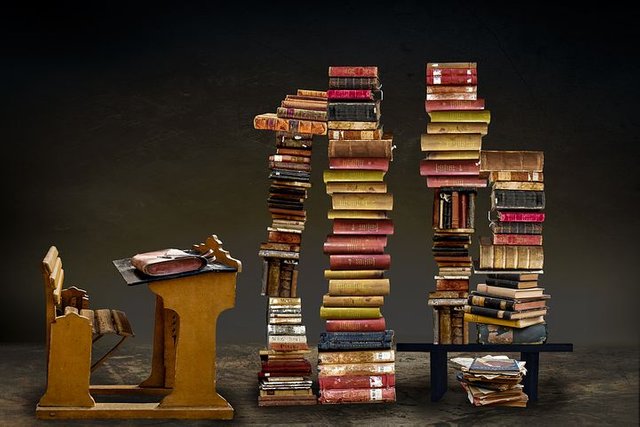A Historical Analysis of Education and National Development in Nigeria

Nigeria - the heart of africa
Education and National Development in History
You should always remember that the strong relationship between education and development cannot be overemphasized. We can even say with confidence that education is to a nation what the mind is to the body. This is not only true for Nigeria alone but is a fact worldwide.
Even in ancient Greece, best known as the cradle of Western scholarship, education was the backbone or a searchlight boomed on society. In ancient Greece, for instance, education was a standard bearer and a blender of minds, behaviour and cherished values. Greek social order and institutions were centered on the philosophy of great educationists of the kind of Socrates, Plato and Aristotle. However, education also followed the life cycle system. The journey of reason and western learning from the ancient; through the classical to the modern world are both eventful and chequered. They were “exorcised” by the medieval Church of perceived traces of heresy and tinted with Christianity. They experienced a rebirth in the Renaissance of the 15th and 16th centuries and in turn gave birth to the Enlightenment in which educational structures were modernized. Even in Europe, although modern educationist forms were taken a field by the missionaries and various agents of imperialism, they nonetheless successfully engendered the industrial revolution and breath-taking development. But what happened in the Nigerian case?
Education and National Development in Nigeria
It is obvious that the type and level of education have to be in line with the needs of society. History tells us that this world-wide fact is not in line with the Nigerian situation.
Stage 1: Nigerian Education in Pre-Colonial Times
In pre-colonial era, most Nigerian communities were small, largely rural and self- sufficient. Not only that the system of education was informal and non-literate, it was not specialized at all. Education in colonial Nigeria was nothing more than schooling. Before independence, Nigerians were schooled to accept the society designed for them by the colonialists. This seriously contradicts Jane F. Doyle’s understanding of education. According to her, education must engender in the individual a disposition of personal autonomy, responsibility and a mastery of relevant forms of life, thought and action. A good education should be free from moral indoctrination, but rich in moral training. Education indefensibly becomes indoctrination when a person is indoctrinated under the pretence of being educated.

Pre-colonial Nigeria
Stage 2: Nigerian Education after Independence
As stated earlier, the type and level of education have to be in line with the needs of the society. So as soon as Nigeria became independent, the functional inadequacies of education in the nation’s schools became glaring as well. As a Republic, Nigerian government became a complex and a complicated one. Therefore, the need to fashion out an educational system that would fit the new mood and the development needs of the nation became obvious and pressing. For instance, the government needed a good number of qualified individuals in almost every sector.
The 1969 National Conference on Education
The year 1969 witnessed the first independent National Educational Conference on curriculum development in Nigeria. The Nigerian Educational Council organized it. The overall aim of the conference was to set a new policy of education for Nigeria. For that reason, it was not limited only to experts and professionals. It was a conference of the people of Nigeria. It was made up of representatives drawn from a cross-section of interest groups such as trade unions, farmers unions, religious bodies, women’s organizations, teachers association, university teachers and administrators, professional organizations and ministry officials. One of the conference’s main tasks was to review old goals and identify new national goals for Nigerian’s education. The findings and decision of the 1969 conference became the cornerstone in the formulation of a national policy on education in 1977. These are some basic tenets:
• The inculcation of the right type of values and attitudes for the survival of the individual and the Nigerian society;
• The training of the mind in the understanding of the world around; and
• The acquisition of appropriate skills, abilities both mental and physical as equipment for the individual to live in and contribute to the development of his society.
The success of the national policy on education of 1977 was unprecedented. Available statistics indicate a tremendous expansion in the country’s educational system both in terms of number and variety of relevant institutions.
According to Imogie (1999), the enrolments in schools as at December 1996 were as follows:
• 37 universities with a student enrolment of 236, 261
• Specialized technological institutions with enrolment of about 2,161
students
• 45 polytechnics with student enrolment of 140, 953 students
• 62 colleges of education with a total student enrolment of 89, 242
• 7,222 secondary and technical schools with student population of
4,503,552
• 48, 242 primary schools with a total enrolment of 16,761,519

Education in Nigeria
Is Nigerian Education System a Failure?
The answer to this question from a historical perspective cannot be a fixed one. History, being a process, some scholars advocate the “no” answer while others advocate the “yes” option.
The “No” Answer Primary and Secondary Levels
In 1976, the Nigerian government introduced the Universal Basic Education Programme (UBE). This favoured the increase of the number of schools along with an impressive increase in enrolment. By December 1996, primary schools enrolment figure was about 17 million. In the south and parts of the middle-belt regions, over 90 percent enrolment of children of school age was recorded. But enrolment and transition rate from primary to secondary schools was still very low in a country with a population of over 100 million people as at that time.
The Tertiary Level
In 1981, the tertiary education witnessed a tremendous improvement with the adoption of the 6-3-3-4 system. This system was the making of Shagari’s administration. The main aim was to train Nigerians that would lead the country on the part of industrial and technological advancement. The 6-3-3-4 system was very much welcomed by many Nigerian scholars. To accomplish this goal, the government decided to increase the Federal Universities from 13 to 21 out of which nine Universities of Technologies were established and located in the main geo-political zones.

The “Yes” Answer
For some scholars, the Nigerian educational system has been a failure. They claim that the theoretical frame under which these programmes were cultivated was perfect on paper but the government lacked the will, the ways and the materials to see them through. At least two reasons have been put forward by them.
The Cultural Conflict
According to G.N. U Uzoigwe (1989), “one of the dominant factors that slows down the growth and productivity of the Nigerian education system is the persistent conflict between foreign intellectual traditions and the African tradition. The result is that the educated Nigerian is thrown into the morass of moral and intellectual confusion. He has neither assimilated the Christian or Islamic traditions fully nor abandoned the Nigerian varied traditions.
The Nigerian Factor
According to the scholars of the “Yes” answer, one of the major reasons for the failure of the Nigeria Education system is that of the “Nigerian factors”. It is unfortunate that many of those who established the Nigerian educational facilities did it for monetary purpose. The end-use of these facilities had never been their intention. They were concerned only with accruable monetary rewards through fat contract settlements. The consequences nowadays are the production of graduates who carry certificates without the knowledge. They constitute a great danger to the society. Indeed, they have acquired nothing and they have nothing to lose.

Which Way Forward?
As seen earlier, it is not easy to say with accuracy the exact period when the standard of education started to decline in Nigeria. It is also obvious that there have been some successes and failures. Since failure seems to be higher than successes, my aim in this section is to see what to do about it. These following are some policies the Nigerian education system needs to pursue:
• Private schools should regain their autonomy
• Government-owned schools should be privatized
• The government should content itself solely with education policy making
• Government policies must be made to ensure that the well-known paradigms for measuring school standards are maintained.
• Government should carry out a clean inventory of existing and private schools with the view to separating the chaffs from the seeds.
REFERENCES/FURTHER READINGS
All statistics and quotes are gotten from the following sources:
Imogie, A.I. “Nigerian Education System and the Future of our
Children.” A Lecture Delivered at the 1999 Oba Akenzua II Memorial Lecture Organized by the University of Benin Alumni Association, Benin-City.Uzoigwe, G.N. “History and Democracy in Nigeria”. Presidential Inaugural Lecture delivered at the 34th Congress of the Historical Society of Nigeria at the University of Benin, Benin City on 16th May, 1989.
All Images are Sourced from Pixabay and Nairaland.
©Irikefe Nathan
Posted from my blog with SteemPress : https://getnaira.000webhostapp.com/2018/06/a-historical-analysis-of-education-and-national-development-in-nigeria-2
Source
Plagiarism is the copying & pasting of others work without giving credit to the original author or artist. Plagiarized posts are considered spam.
Spam is discouraged by the community, and may result in action from the cheetah bot.
More information and tips on sharing content.
If you believe this comment is in error, please contact us in #disputes on Discord
Hi! This is jlk.news intelligent bot. I just upvoted your post based on my criteria for quality. Keep on writing nice posts on Steemit and follow me @jlkreiss to get premium world news updates round the clock! 🦄🦄🦄
Resteemed your article. This article was resteemed because you are part of the New Steemians project. You can learn more about it here: https://steemit.com/introduceyourself/@gaman/new-steemians-project-launch